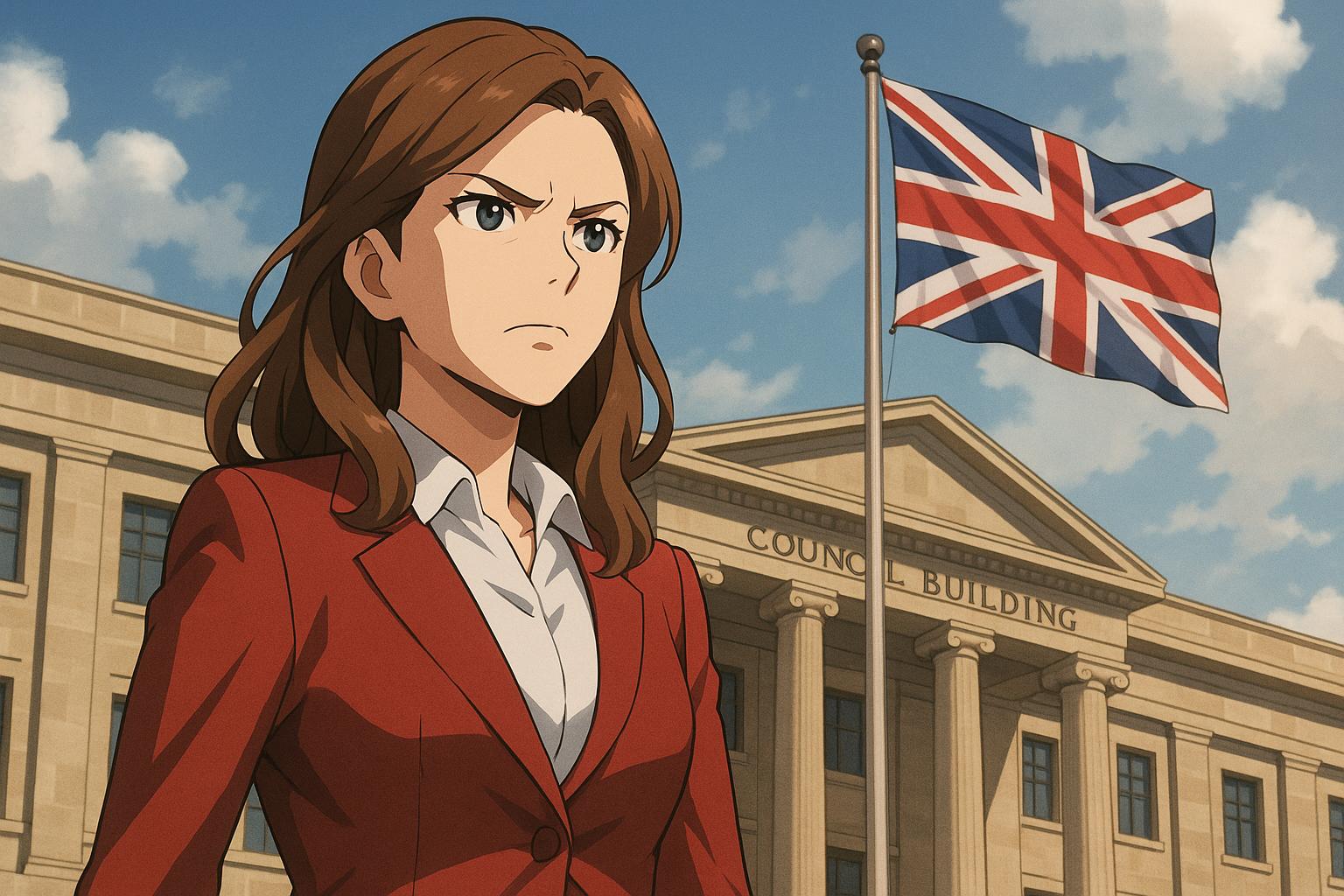A recent political shift in Durham County, following the local elections, has prompted significant controversy over flag displays at the council's headquarters. In the aftermath of the elections held on May 1, Reform UK, led by Nigel Farage, seized control of the council, securing 65 seats out of 98. Less than a month later, the new administration mandated the removal of both the Ukrainian and LGBTQ+ Pride flags from the exterior of the county hall at Aykley Heads, opting instead to uphold only the Union Jack, the flag of St George, and the County Council banner.
This decision has ignited outrage, particularly from Liberal Democrat councillor Ellie Hopgood, who previously presided over the council in coalition with other parties. Speaking to the Daily Express, Hopgood articulated her dismay, stating, "We don't need to choose between pride flags and the Union Jack. We can have both." She emphasised that the timing of the removals—just days before the Pride in Armed Forces march—was particularly disrespectful, arguing that such actions undermine the sacrifices made by service members who deserve to be celebrated.
In defending the council's stance, Darren Grimes, deputy leader of Reform UK and an openly gay councillor, asserted that the party's position is not anti-LGBTQ+ but rather "anti-tokenism." This phrase highlights a belief within the party that flags should not be used as mere symbols without genuine support behind them. Grimes’ comments illustrate a delicate balancing act as the party attempts to navigate their identity in a landscape increasingly sensitive to issues of representation and inclusion.
Reform UK's explicit policy, now in practice across the councils it controls—including Durham, Lancashire, and Staffordshire—stipulates that only the Union Jack, the St George's Cross, and recognised county standards are permitted to fly from public buildings. The enforcement of this policy has been met with criticism from Labour MPs and various advocates for LGBTQ+ rights, who argue it sends a troubling message, particularly in light of ongoing geopolitical conflicts such as the war in Ukraine. The exclusion of the Ukrainian flag is particularly poignant given the war’s implications for international solidarity, drawing disdain from those who believe it undermines support for a nation currently facing aggression.
The broader implications of the Reform UK’s policy shift signal a notable change in the political landscape across the region. Not only did they capture control of Durham County Council, but they also made significant gains in Northumberland, challenging the traditional stronghold of Labour in local governance. These results leave many questioning the future direction of political alliances and community representation under the new regime.
As the party consolidates its power, the debate over public symbols like flags reflects deeper societal divisions, where the interpretation of national pride is increasingly contentious. Critics of the decision assert that opting for a singular representation of national identity disregards the diverse tapestry of the public it professes to serve. Such positions raise critical questions about inclusivity in representation, especially regarding communities historically marginalised in public discourse.
In the wake of these developments, the public and political discourse in Durham continues to evolve, grappling with the implications of a new governance style that prioritises a particular vision of national identity while sidelining others. As the Lesbian, Gay, Bisexual, Transgender, and Queer (LGBTQ+) community, along with supporters of Ukraine, mobilise in reaction, the city stands at a crossroads—where local politics entwine with the issues of global significance, fidelity, and expression.
Reference Map
- Core focus on the removal of flags and local governance changes.
- Overview of Reform UK's flag policy and reactions from the Labour party.
- Context on political shifts in Durham and regional dynamics.
- Insights into Reform UK's current policies regarding flags.
- Clarification that county standards will still be displayed.
- Background on notable political defections within the council.
- Discussion on local identity and international solidarity implications.
Source: Noah Wire Services
